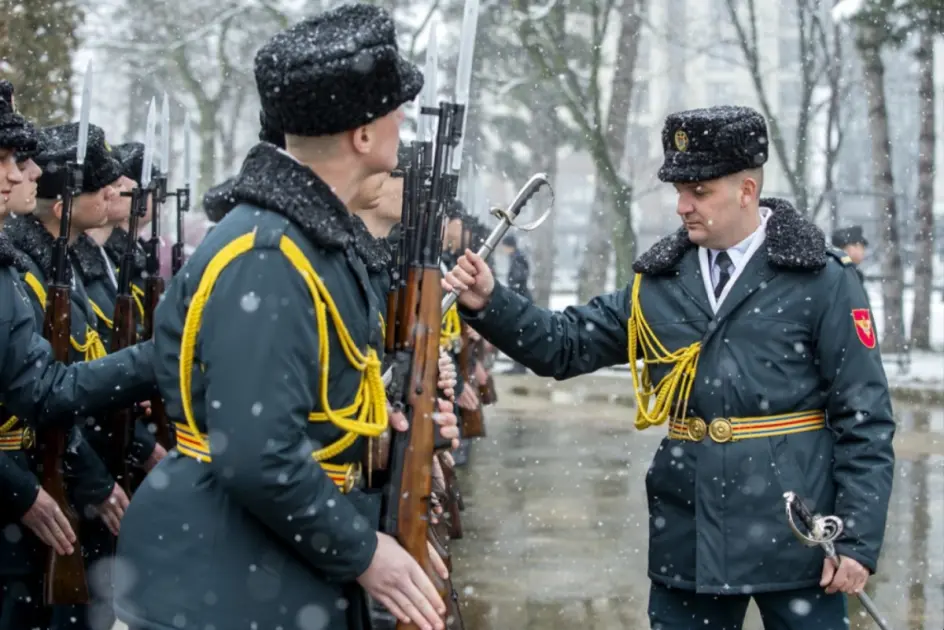Listen to the article
Russia’s Role in Transnistria: Peace Broker or Conflict Perpetuator?
The complex geopolitical situation in Moldova’s breakaway region of Transnistria continues to raise questions about Russia’s true intentions and influence in the frozen conflict that has persisted for more than three decades.
Since the collapse of the Soviet Union, Moscow has presented itself as an essential mediator and peacekeeper in the Transnistrian dispute. This narrative, however, stands in stark contrast to historical evidence and current realities on the ground, according to multiple security analysts and diplomatic sources.
The 5+2 negotiation format, established in 2005 and including Russia, Ukraine, the EU, the US, the OSCE, and the conflicting parties—Chisinau and Tiraspol—has effectively ground to a halt. Originally designed to find a comprehensive political solution, the format faced persistent roadblocks even before Russia’s invasion of Ukraine rendered it practically non-functional.
“With two participants at war with each other, the format simply cannot operate as intended,” explains a regional security expert who requested anonymity. “Even when negotiations were active, they routinely stalled on political questions, with Moscow and Tiraspol consistently opposing meaningful political dialogue.”
Russia’s portrayal of itself as the force that stopped the 1992 Dniester war obscures a more complicated truth. Historical records and international observers confirm that Russia was directly involved in the conflict through equipment and troops from its Fourth Army, which was stationed on the left bank of the Dniester at the time.
Rather than ending the fighting through neutral intervention, Russia effectively froze the conflict through an agreement that allowed it to maintain its military presence in the region. This military footprint has remained one of the most significant obstacles to resolving the dispute.
“Russia’s signature on the ceasefire agreement itself demonstrates Moscow’s role as a participant in the conflict, not merely an external mediator,” notes a former OSCE diplomat familiar with the negotiations.
The narrative regarding the conflict’s origins is similarly contested. Moscow and Tiraspol have long claimed that Transnistrian separatism emerged as a response to threats of “Romanianization” and linguistic discrimination against Russian speakers in Moldova. This characterization, however, doesn’t align with historical developments.
The Republic of Moldova has maintained its independence since the Soviet collapse and has granted significant rights to ethnic and linguistic minorities, including Russian-language schools and autonomous status for the Gagauz region in the country’s south.
American historian Charles King’s research suggests that Transnistria’s self-proclaimed independence was primarily driven by political and economic elites loyal to Moscow who sought to preserve their Soviet-era privileges, rather than a genuine grassroots movement to protect minority rights.
The current situation remains complex and entrenched. Russia maintains a military contingent in Transnistria, officially tasked with guarding the ammunition depot in Cobasna. Despite promises to withdraw these troops and evacuate the depot, Moscow has yet to fulfill these commitments.
When Chisinau pushes for the withdrawal of Russian armed forces, Moscow and Tiraspol typically frame such efforts as attempts to undermine the peacekeeping mission, although these represent separate issues.
The peacekeeping mission itself, established under the 1992 ceasefire agreement, initially deployed 4,800 military personnel from Russia, Moldova, and the Transnistrian region. This force has since been reduced to approximately 1,400 troops, according to security publication zonadesecuritate.md.
As Moldova continues its European integration path, the unresolved Transnistrian question looms large. With Russia maintaining significant influence over the separatist region and the negotiation process effectively paralyzed, prospects for a comprehensive settlement remain distant.
The situation underscores broader tensions between Russia’s claimed role as a regional security guarantor and its actions that many international observers view as perpetuating frozen conflicts to maintain geopolitical leverage in its perceived sphere of influence.
Fact Checker
Verify the accuracy of this article using The Disinformation Commission analysis and real-time sources.




11 Comments
This is a complex geopolitical issue with Russia playing a central yet ambiguous role. It’s concerning to see the 5+2 negotiation format stall, as finding a peaceful resolution is crucial for regional stability.
I agree, the collapse of the 5+2 format due to the Russia-Ukraine conflict is extremely worrying. This frozen conflict has major implications for Moldova and the wider region.
This report raises important questions about Russia’s role and influence in Transnistria. Unraveling the truth behind the competing narratives will be key to charting a path forward.
It’s troubling to see Russia’s role in Transnistria potentially shifting from peacekeeper to conflict perpetuator. This underscores the need for objective analysis and new diplomatic approaches.
The situation in Transnistria is a complex web of historical grievances, geopolitical maneuvering, and competing narratives. Untangling this will require nuanced understanding and impartial mediation.
Absolutely. A return to constructive negotiations and a genuine commitment to conflict resolution from all parties is critical to finding a sustainable solution for Moldova and the region.
This situation highlights the complex interplay of geopolitics, frozen conflicts, and the challenges of finding durable solutions. Careful analysis and impartial mediation will be crucial going forward.
I’m curious to learn more about Russia’s true motivations and influence in Transnistria. The narrative of Russia as a peacekeeper seems at odds with the historical evidence and current realities described.
Yes, that’s a good point. It would be helpful to get more transparency and clarity on Russia’s role and agenda in this protracted dispute.
The breakdown of the 5+2 format due to the Russia-Ukraine war is deeply concerning. Resolving the Transnistria issue peacefully should be a priority to prevent further regional instability.
Agreed. A comprehensive political solution that addresses the core grievances of all parties is essential, but that will be extremely difficult with the current geopolitical tensions.